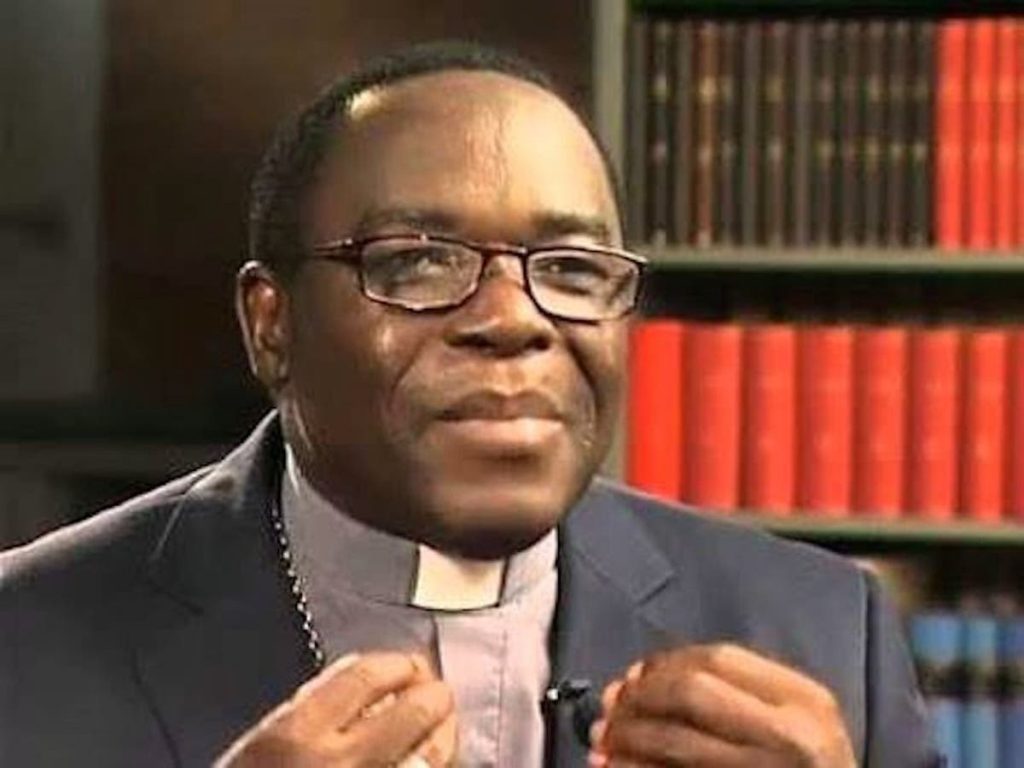News
Ex-policeman Who filmed Wife Having Wex With Her Superior Found Guilty Of Stalking

An obsessed former police officer who caught his wife having sex with a married colleague in a car park has narrowly avoided jail after being convicted of stalking.
Gavin Harper, 45, found Stephanie Glynn, 40, and her lover Andrew McLullich, 42, outside the hardware store in Birkenhead, Merseyside, UK on February 16, 2021, after secretly placing a tracker on his wife’s car.
He slowly crept up to the vehicle and used his mobile phone to record the lovers, who were naked from the waist down, before allegedly shouting: ‘I’ve got you on film sh***ing my wife.’
The dad-of-two was found guilty of aggravated stalking, including secretly bugging Ms Glynn’s car, listening to her conservations, tracking her movements and taking her phone without permission.
He was also accused of assaulting Mr McLullich, a Merseyside Police Inspector, but was cleared of injuring the officer at Liverpool Crown Court as he claimed he only struck the policeman in self-defence.
READ ALSO: Drama As Outage Disrupts Power Minister’s Speech At N’Assembly
Prosecutors said it was Harper’s conviction was the end of the campaign of ‘obsessive, intrusive and unwanted behaviour’ against Ms Glynn from December 2020 to February 2021.
Harper and Ms Glynn met as Merseyside Police officers and were in a six-year relationship before they married in 2018 but she left the family home in December 2020 after she grew close to her work mentor Mr McLullich, an acting inspector at the time and formerly her supervising sergeant.
Giving evidence, Harper said he wanted ‘undeniable proof’ of the affair, which he said Ms Glynn had persistently denied.
His intention was to pass the video to police as evidence of two serving officers having an inappropriate relationship during Covid lockdown restrictions, he said.
On Monday, Judge David Potter sentenced Harper to two years in jail, suspended for two years.
READ ALSO: Five Injured As Vehicles Collide In Lagos
The judge told him he would have faced immediate custody but for the significant effect that imprisonment would have had on his elderly parents and youngest son.
Harper’s lawyers told the court that he would lose his security job if jailed and would be unable to make his mortgage payments. His parents, whom he informally cared for, would ‘not be able to cope’ and his son would have to give up his university studies.
Judge Potter told Harper: “I am sure you became obsessed to the point of criminality in stalking Stephanie Glynn to provide evidence of her affair to weaponise that against her for having that affair, and you also became determined to destroy the career of Andrew McCulloch.
“In that obsession the feelings, embarrassment and pain felt by Stephanie Glynn were collateral damage. You were more concerned about your own feelings and a raging sense of injustice.”
He said the events at Screwfix ‘do no credit to any of the people involved’ and the incident was ‘rash, foolish, selfish and unprofessional’.
READ ALSO: Detained Binance Chief’s Wife Drags Nigeria Before US Parliament
Judge Potter went on: “I am sure it has haunted them (Ms Glynn and Mr McLullich) and will continue to haunt them for many years.”
But he said their acts were ‘made worse’ by Harper filming them on his mobile phone.
He said: “It was a further gross example of stalking designed to maximise their humiliation to your advantage. Your conduct was intended to maximise fear or distress.
“You resorted to stalking out of a sense of vengeance for being the victim of an affair. I am sure the distress caused to your victim has been very serious.”
But he added that there was ‘another side’ to the defendant who had no previous convictions, and had suffered mental trauma himself.
Harper had been diagnosed with post-traumatic stress disorder as a result of his Army service in the King’s Regiment and the Royal Military Police – before he joined Merseyside Police in 2001.
News
FULL LIST: FG Lists Nigerian Veterans For Honours To Celebrate 100 Years Of Aviation Industry

The Federal Government of Nigeria has unveiled Nigerian veterans and distinguished aviators to be honoured for pioneering contributions that have shaped Nigeria’s aviation industry over the past century.
The Minister of Aviation and Aerospace Development, Festus Keyamo, announced the event in an X post on Saturday, describing the awardees as “icons whose vision and dedication laid the groundwork for Nigeria’s aviation success.”
He also shared photos of some of the honourees ahead of the event slated for Monday, December 1, 2025 at the Bola Ahmed Tinubu International Conference Centre in Abuja.
According to him, the recognition is part of activities marking 100 years of aviation in Nigeria, tracing the sector’s evolution from colonial era to its present status as a critical contributor to the country’s economy.
READ ALSO:Why FG Named KWAM 1 Aviation Security Ambassador — Keyamo
“The first ever aircraft to land in Nigeria was in Kano in 1925. As a result, we are celebrating 100 years of aviation in Nigeria this year. On Monday, December 1, 2025, at the Bola Ahmed Tinubu International Conference Center, Abuja, we shall celebrate this milestone with a number of performances and events, including honouring veterans of the aviation industry in the last 100 years. We are inviting all aviation stakeholders to the event,” he wrote.
Below are the list of some of the Nigerian veterans who have shaped the aviation industry, as shared by the Aviation Minister:
Chief Gabriel Igbinedion, founder of Okada Air.
Late Alhaji Ahmadu Dan kabo, founder of Kabo Air.
Capt Robert Hayes, Nigeria’s first certified pilot.
Chief Mbazulike Amechi, former Minister of Aviation and instrumental in establishing Nigerian Airways.
READ ALSO:JUST IN: Kenya Airways Pays NCAA Sanction Fee For Passenger’s Rights Violations
Chief Allen Ifechukwu Onyeama, Air Peace founder, promoted local content and invested in Nigerian youths’ training.
Dr Emmanuel Enekwechi, contributed to the aviation industry’s growth.
Capt. August Okpe, founder and CEO of Okpe Aviation Services, Nigeria’s first indigenous aviation engineering company.
Sen. Hadi Sirika, former Minister of Aviation, initiated policies like the national carrier launch.
Capt Rabiu Hamisu Yadudu, pioneered Nigeria’s aviation industry and transformed airports into world-class facilities.
Capt Ado Sanusi
Chief Wale Babalakin
Sir Joseph Arumemi
Olumuyiwa Bernard Aliu
READ ALSO:JUST IN: Kenya Airways Pays NCAA Sanction Fee For Passenger’s Rights Violations
Capt Dele Ore
Capt Wale Makinde
Capt Ibrahim Mshella
Capt Dapo Olumide
Ms Bimbo Sosina
Capt Benoni Briggs
Mrs Deola Olukunle
Dr Thomas Ogunbangbe
Capt Edward Boyo
Dr Gbenga Olowo
Elder Dr Soji Amusan
Engr Awogbemi Clement
Sen Musa Adede
Georg Eder MBA
Capt Prex Porbeni
Mrs Folashade Odutola
Dr Taiwo Afolabi OON
Capt Fola Adeola
Dr Seindemi Fadeni
Capt Chinyere Kali
Harold Demure
Akin Olateru
Mr George Urensi
Mrs Deola Yesufu
Engr Babatunde Obadofin
Dr Ayo Obilana
Capt Felix Iheanacho
Capt Peter Adenihun
Capt Jonathan Ibrahim
Pa Odeleye AC
Capt Toju Ogidi
Pa Abel Kalu Ukonu
News
Bishop Kukah Insists No Christian Genocide In Nigeria, Gives Reasons

The Catholic Bishop of Sokoto Diocese and Convener of the National Peace Committee (NPC), Most Rev. Matthew Kukah, has insisted that there’s no Christian genocide in Nigeria, explaining that number of people killed doesn’t amount to genocide.
Bishop Kukah stated this while presenting a paper at the 46th Supreme Convention of the Knights of St. Mulumba (KSM) in Kaduna.
His comments follow criticism that trailed reports quoting him as advising the international community against designating Nigeria as a “country of particular concern.”
The bishop explained that such labels could heighten tensions, fuel suspicion, and give room for criminal groups to exploit the situation, which would disrupt interfaith dialogue and cooperation with government.
READ ALSO:SERAP Drags Akpabio, Tajudeen To Court Over Alleged Missing N18.6bn NASS Complex Project Funds
Addressing figures circulated about alleged Christian killings in Nigeria, Kukah said he aligns with the Vatican Secretary of State, the President of the Catholic Bishops’ Conference of Nigeria, and all Catholic bishops in the country.
He said, “They are saying that 1,200 churches are burnt in Nigeria every year, and I ask myself, in which Nigeria? Interestingly, nobody approached the Catholic Church to get accurate data. We do not know where these figures came from. All those talking about persecution, has anyone ever called to ask, ‘Bishop Kukah, what is the situation?’ The data being circulated cleverly avoids the Catholic Church because they know Catholics do not indulge in hearsay.”
On the use of the term genocide, he noted, “Genocide is not based on the number of people killed. You can kill 10 million people and it still won’t amount to genocide. The critical determinant is intent, whether the aim is to eliminate a group of people. So, you don’t determine genocide by numbers; you determine it by intention. We need to be more clinical in the issues we discuss.”
Kukah also challenged claims that Christians in Nigeria are being targeted. He said, “If you are a Christian in Nigeria and you say you are persecuted, my question is: how? At least 80% of educated Nigerians are Christians, and up to 85% of the Nigerian economy is controlled by Christians. With such figures, how can anyone say Christians are being persecuted?”
READ ALSO:Yiaga, Kukah Centre, CEMESO, Others, Assess Anambra Guber, Advocate Electoral Laws Enforcement
He linked many of the challenges faced by Christians to a lack of unity, stating, “The main problem is that Christians succumb to bullies. The day we decide to stand together, believing that an injury to one is an injury to all, these things will stop.”
He further warned against loosely labeling victims as martyrs. “Because someone is killed in a church, does that automatically make them a martyr? Whether you are killed while stealing someone’s yam or attacked by bandits, does that qualify as martyrdom? I am worried because we must think more deeply.”
Clarifying his earlier remarks, he added, “People say there is genocide in Nigeria. What I presented at the Vatican was a 1,270-page study on genocide in Nigeria and elsewhere. My argument is that it is not accurate to claim there is genocide or martyrdom in Nigeria.”
News
OPINION] MOWAA: Unpleasant meal cooked for Benin from the outside (Two)

By Tony Erha
“Agha tot’ ikolo, t’ amen mie ede”; A Benin idiom holds sway that; “When the earthworm dominates a discussion, the rainfall would be all day long”. For the Museum of West Africa Art (MOWAA), whose skewed establishment had resurfaced about 2018, dominated global discourse and has reached a peak. Day in, day out, there is intense global indignation, bothering on an alleged swindling of the museum’s artefacts and huge accrued monies, which were under the care of the immediate-past governor of Edo State, Mr. Godwin Obaseki, alongside some of his political and business associates, which many commentators presented to be a f monumental fraud. As already claimed, it could as well have been called MOWAA-gate!
This article, being the second and last stanza of the first, published two weeks ago, was predicated on the decimating crisis of MOWAA. A condensed recap of the said article was partly anchored on a lavish reportage by swamps of Nigerian and foreign press, which largely implicated the Obaseki’s government, as inept in the due processes of MOWAA’s setup. MOWAA is a charitable entity, which sprang up on global funding and other resources of the state government, whereupon a case of undue diligence was allegedly stressed on Obaseki and his government.
There is a threesome public inquiry, thus raising a gummy accusation of indecency, especially when the ex-governor Obaseki’s People’s Democratic Party (PDP) had been voted out by the All Progressives Congress (APC), with Senator Monday Okpebholo as the present governor. And the MOWAA-gate is getting messier as Governor Okpebholo and the state’s House of Assembly, the lawmaking arm, had each set up a probe panel. Disturbed that the MOWAA-gate is earning the nation a bad name, the National Assembly, from a far-away Abuja, the nation’s capital, also instituted another probe.
”The returned looted Benin artifacts, like other sacred art work of Benin provenance, are not just superficial or ornamental, but infused with the mystical command and supernatural energy of the Benin kingdom of great antique. The key to correctly identify, classify, and position the authentic totems, in time and space, lies in the Royal Benin Palace, under the power of the Oba of Benin”. Sampson Ebome, a lawyer and perceptive cultural activist, uttered, postulating further;
MORE FROM THE AUTHOR:[OPINION] MOWAA: Unpleasant Meal Cooked For Benin From The Outside (Part One)
“In every other society as Japan, Sweden, Spain, Denmark, Britain, the Netherlands, Saudi Arabia and Morocco etc., royalty holds a choice-place in preserving the unique cultural and corporate identity of the society and its governance. It is no co-incidence, therefore, that even in today’s Europe, there are about twelve statutory monarchs in its advanced democracies. Perhaps, the grave error of Godwin Obaseki’s administration was to proceed on the false logic that a concrete divergence existed between the government and the Benin kingdom, the very source and origin of the history, dialects, cultural identity and heritage of all the people of Edo State. To have persisted in this gargantuan ruse, an original artifice of the colonising powers of Europe, was always bound to be destabilising to the spiritual and socio-political equilibrium of the state”
In the state’s legislative’s probe, cans of worms are being revealed on MOWAA and the Reddisson Hotel construction, said to have been Obaseki’s conduit pipes. And there is intense firework by the contending parties. Chief Osaro Idah and some of the Oba’s palace chiefs have dragged MOWAA to the law court, a development which Oyiwola Afolabi SAN, MOWAA’s lawyer said had jeopardised the appearances of Godwin Obaseki, Osarodion Ogie (former Secretary to State Government) and other MOWAA’s executive at the House of Assembly summon.
“Even khiri-khiri keke udemwen idan ere ogbakhian”. “Fierce wrestling is a companion to violent thuds”. And the fight is now more forceful as no man will leave his leg for an opponent to grab. “Emwin na ma ru ese, to si itale emwen”, a Benin parlance for; “That which had been tardily or slyly done is bound to cause disaffection”. And so, the fight ranges whilst the onlookers are left to mock he that is already falling!
“Ovbi ekpen ere otolo ekpen ehae”. “Osayomore Joseph, the late music crooner and a soulmate, had often reminded me about the age-long Benin axiom; “It takes only the Cub – heir, to tickle the forehead of a Leopard. Instructively, HRM, Ewuare II, the revered Oba of Benin, with the Methuselah of wisdom at play, narrated the seizure of the artefactual ownership and benefaction, as he stoically alleged the undue conscription of his heir into the corporate board of Edo Museum of West Africa Art (EMOWAA) by ex-governor Obaseki. His son had also attested to that. The claim was also buttressed that EMOWAA was an inordinate scheme evolved by Obaseki and his associates to wrestle the returned looted artefacts and supplement payment from their foreign sources.
MORE FROM THE AUTHOR:OPINION: A ‘Crazy’ African Nation, Where Citizens Eat And Drink Football
The Esans of Edo would say; “Ehun no ho obhiaha emoen, avava uwendin, ole odia”. “The sharp fart that disgraces the bride perches in-between her buttocks”. Once upon a time, Governor Okpebholo, on the heels of his final governorship declaration by the Supreme Court, which Obaseki and his protégé, Dr. Asue Ighodalo, the PDP candidate had dragged him through, was swayed by the of Senator Adams Oshiomhole insistence on the probe of Obaseki and his government. But Nyesom Wike, the flammable minister of Abuja, had dissuaded a pliable Okpebholo. But, Obaseki wasn’t mindful that he had escaped the expected probes, until he caused it with his usual foibles.
“Asua gha sua egile, oya danmwen ekpatu; eighi ye ebe gue egbe”. In a Benin folktale, it’s about the adventurous snail that crawls up the tree and soon crash to the ground, failing to cover itself from its hunters. The headstrong former governor, with the braggadocio of a ‘diaspora governor’, has taken the fight from ‘iya’ (valley) to ‘oke’ (mountain top). All we now see is the continuation of a “filaga filogo” (a street brawn with broken bottles and cudgels), now that ‘slappers and bone breakers’ fight wherever they meet in Europe and America. It is a bitter reminder of Obaseki’s heydays of masterminding the ‘Torgbas’ fighters’ gang that fought the APC’s ‘Tokpas’, which had earned him aliases like ‘Emanton’ (Iron Rod) and ‘Isakpana’ (the god of anger).
Whilst Nigerians and humankind watch the ‘filaga filogo’ and shame emanating from the Nigeria’s ‘heartbeat’ state, the very man who was called the ‘Wake and see Governor, may be laying down in the foreign climes the same landlines, that he laid on his home’s pathway that makes him to go into self-exile’.

 News5 days ago
News5 days agoHow To Access Your Pension Before Retirement

 News4 days ago
News4 days agoBREAKING: Tinubu Declares Nationwide Security Emergency, Orders Armed Forces To Recruit More Personnel

 Metro3 days ago
Metro3 days agoJUST IN: One Dead As Ngige Escapes Assassination

 Headline5 days ago
Headline5 days agoCoup In Guinea-Bissau? Soldiers Deployed Near Presidential Palace After Gunfire

 News3 days ago
News3 days agoGuinea-Bissau Coup: FG Gives Update On Ex-President Jonathan

 News4 days ago
News4 days agoOkpebholo Fires EDOGIS Managing Director

 News4 days ago
News4 days agoTinubu Appoints Non-Career Ambassadors For US, UK, France

 Metro4 days ago
Metro4 days agoBREAKING: Bandits Abduct Teenage Boy, Six Girls From FCT Community

 Metro4 days ago
Metro4 days agoTrain Attack: Terrorist Leader Gave Mamu N50m From Ransom — DSS Operative

 News5 days ago
News5 days agoCourt Issues Arrest Warrant For Miss Universe Co-owner


















